In South Carolina, Adverse Possession is a legal concept that allows someone to gain possession of land if certain elements are met. In order for a squatter to acquire title to the property through adverse possession, they must establish exclusive, continuous, and open use of the property for a period of at least ten years.
During this time they must pay all taxes associated with the property and have exclusive control over it. Additionally, they must have either express or implied permission from the owner or an ancestor of the current owner in order to claim adverse possession.
Furthermore, their use of the property must be visible to all other members of the community - if it is not known by others, then it does not count towards establishing adverse possession. Lastly, squatters must also prove that their use is hostile; meaning that it was done without knowledge or permission from the true owner and was done with intent to possess the land as one’s own.
If these elements are met then a squatter may be able to gain title through Adverse Possession in South Carolina.
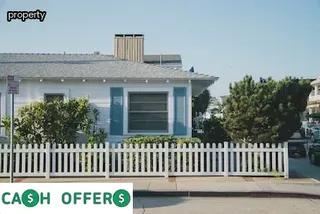
In South Carolina, squatters rights are a form of adverse possession in which an individual can gain title to real property through open and notorious possession. In order to be eligible for squatters rights, the squatter must have been in exclusive, actual, visible, and uninterrupted possession of the property for at least ten years.
Furthermore, the squatter must also have made improvements to the property or paid taxes on it during this time. The law states that if these conditions are met, then the squatter is entitled to title of the property from its former owner.
It is important for homeowners in South Carolina to understand their rights in relation to squatters and consult with a lawyer if they have any questions or concerns about their particular situation.
In South Carolina, squatters can lay claim to any type of property including residential buildings and land.
The law of adverse possession states that when an individual or group occupies someone else's property for a certain amount of time and meets other criteria, they may be able to gain title to the property.
Squatters must prove that they have been in continuous occupation of the land for at least ten years, have paid taxes on the property, have improved it in some fashion, and have done so openly and notoriously (meaning openly acknowledged by neighbors).
In order to successfully claim title to the land through adverse possession laws, all stipulations must be met.

In South Carolina, squatters may establish color of title through a process known as adverse possession. This means that if a squatter can demonstrate that they have had exclusive possession of the property for at least 10 years or more, and have paid all taxes associated with the land, then they have established color of title under South Carolina state law.
To do this, the squatter must prove that they have openly used and occupied the property in a manner that is consistent with ownership, such as by making improvements to it. In some cases, such as when there is an existing deed for the property, the squatter may need to provide evidence that they have been in continuous possession of it for at least ten years.
Furthermore, squatters must also be able to show that their use of the land has been done without permission from its legal owner. If all these criteria are met, then the squatter has established color of title and could potentially gain legal ownership of the property.
In South Carolina, a squatter must occupy the property for a period of at least 10 years in order to establish adverse possession. This means that if a person has lived on the property without the permission of the rightful owner, they may be able to claim legal ownership after ten years.
The law requires that squatters demonstrate certain elements including intent to possess, actual and visible occupation, peaceful use, and exclusive use over the course of this 10-year period as proof of possession. Additionally, squatters must pay all taxes associated with the property during their time living there and must have entered into occupancy in good faith.
All these conditions must be met before squatters can successfully establish adverse possession in South Carolina.

Understanding the potential benefits and drawbacks of Adverse Possession in South Carolina can help homeowners make informed decisions. This is a process whereby a squatter, or an individual who is occupying land without permission from the rightful owner, acquires legal title to it after a certain amount of time has passed.
In South Carolina, the law requires that squatters must occupy the land continuously for twenty years and pay all taxes related to that property. While adverse possession can be beneficial for both squatters and landowners, it also carries some potential risks.
For example, if the squatter pays taxes but fails to use the property for any other purpose during that time period, then they may not qualify for adverse possession. Landowners should also consider whether granting adverse possession could result in lost profits from renting or selling their land if they lose ownership rights through this process.
Additionally, squatters may acquire rights to disputed areas on private property, potentially creating conflict between neighbors over boundaries and ownership rights. A careful evaluation of all possible outcomes associated with adverse possession is necessary before any action is taken in South Carolina.
Protecting against squatting is an important issue for landlords in South Carolina, as the state has relatively lenient adverse possession laws which can leave homeowners vulnerable to squatters. It is essential for landlords to understand how these laws function and the steps they should take to protect themselves from potential claims of adverse possession.
One way a landlord can prevent squatting is by making sure that their property is clearly marked with no trespassing signs; this serves as an official warning that any unauthorized visitors will not be tolerated. Another effective strategy is to take photographs of the property on a regular basis in order to ensure that no changes have been made without permission.
Lastly, it’s important to stay up-to-date with local laws and regulations; if any changes are made which could potentially affect a landlord’s rights, they must be aware of them in order to take action accordingly. By following these simple steps, landlords in South Carolina can ensure that their property remains safe from squatters while also being aware of their own rights under the law.
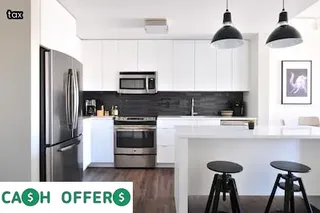
In South Carolina, the answer to whether holdover tenants are considered squatters or trespassers depends on the circumstances. If a tenant has paid rent and stayed in a dwelling after their lease expired, then they are generally not considered squatters or trespassers.
Rather, they are known as “holdover tenants” and can be evicted by the homeowner. However, if a tenant has not paid rent for an extended period of time and remains in the dwelling without permission from the homeowner, then they may be considered a squatter or trespasser.
This is because squatter’s rights allow individuals who occupy a property without permission to acquire legal title to it after a certain period of time, while other laws protect people from criminal charges related to trespassing when they remain in possession of land without permission. Ultimately, it is important for homeowners to understand both types of laws so that they can take appropriate action if needed.
Finding affordable home and car insurance in South Carolina can be a challenge, but there are resources available to help. Your best bet is to compare multiple companies to find the one with the best coverage at an affordable rate.
Doing research online is a great first step, as many insurance carriers offer discounts for customers who purchase their policies online. You should also look into any special offers or discounts you may qualify for, such as those for safe drivers or members of certain organizations.
Additionally, some companies have local offices that may provide better rates than those offered online. If you have any questions about what type of insurance coverage you need, it's important to consult a knowledgeable agent who can provide personalized advice tailored to your specific needs.
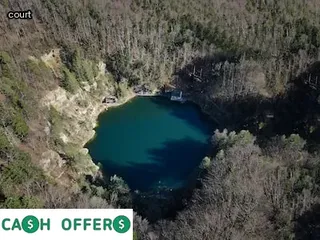
Evicting a squatter from your property can be a complicated process, as South Carolina has specific laws that govern adverse possession. To successfully execute an eviction in South Carolina, it is important for homeowners to understand the rights of squatters and what steps need to be taken to remove them.
In order for a squatter to gain rights to your property, they must be occupying it openly and exclusively for at least 10 years without paying rent or being challenged by the rightful owner. During this time, the squatter must also fulfill certain requirements such as paying taxes on the property or making improvements to it.
Before attempting an eviction, homeowners should contact local law enforcement who can provide assistance regarding any trespassing laws that may apply and help determine if the squatters have rights to the property through adverse possession. If not, then you will need to file an unlawful detainer lawsuit with the court in order for a judge to issue an order for their removal.
Homeowners should also check their state's statutes on trespassing and adverse possession in order to ensure that all legal regulations are followed during the eviction process.
In South Carolina, squatting on private property can have significant legal consequences. It is important for homeowners to understand their rights and the local laws regarding adverse possession that could apply in these situations.
Squatters may be able to gain legal title over a property if they meet certain requirements, such as establishing residency and paying taxes on the land. However, these requirements vary depending on the jurisdiction; therefore, understanding local statutes is crucial.
Homeowners should also familiarize themselves with the process of evicting a squatter from their property if necessary. In most cases, this requires filing a claim in court and having a judge make a ruling determining whether or not a squatter has gained title over the land.
Failure to follow eviction procedures properly can result in fines or even criminal penalties in some cases. With an understanding of squatters’ rights and knowledge of local laws and regulations concerning adverse possession, homeowners are better equipped to protect their property from unauthorized occupancy.
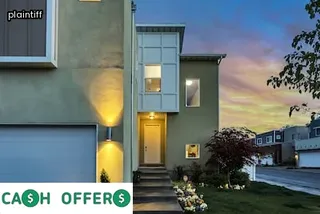
When facing a dispute with a tenant, it is important for landlords to be aware of implied license agreements and how they can impact landlord-tenant relationships. Implied license agreements are an agreement between a landlord and tenant that allow the tenant to occupy land or property without actually having legal title.
In South Carolina, implied license agreements are regulated by the state's adverse possession laws. These laws set out when a tenant may be granted an implied license agreement and what rights they have once they are granted one.
It's important for landlords to understand these laws in order to protect their rights and ensure that their tenants comply with the terms of any agreement made. Additionally, understanding implied license agreements can help landlords avoid potential disputes with their tenants, as well as reduce the risk of eviction proceedings.
South Carolina's real estate laws include provisions for adverse possession, which is when someone begins to occupy land that they do not formally own. This can occur if the property has been unoccupied for many years and the squatter has a good faith belief that they are the rightful owner.
In order to prove adverse possession in South Carolina, it must be proven that the squatting party had exclusive possession of the property for an uninterrupted period of at least ten years and had paid taxes on it in some form or another. Additionally, the squatter must have openly used or occupied the property as if they were its true owner.
If all of these criteria have been met, then a court may grant ownership rights to the squatter. Adverse possession is an important consideration for homeowners in South Carolina, as it can impact their legal rights and responsibilities regarding their properties.
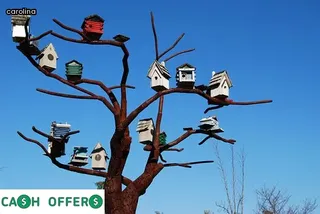
The foreclosure process in South Carolina is initiated when a homeowner defaults on their mortgage payments. The lender will then file a complaint with the court and serve the borrower with a summons and copy of the complaint.
The borrower must respond to the summons within thirty days or else they are in default. Once the borrower has been served, they can either negotiate with the lender or proceed to trial.
At trial, if the judge finds that there was a breach of contract, then they will issue an Order of Foreclosure which allows the lender to take possession of the home. If this happens, all occupants must vacate within sixty days or face eviction proceedings.
It is important for homeowners to be aware of their rights during this process, as squatters may attempt to gain possession of their property through adverse possession laws. Understanding these laws can provide additional protection against such attempts and provide homeowners with peace of mind knowing that their home is secure.
In South Carolina, the penalties for violating landlord-tenant laws are severe. Landlords and tenants must understand their rights and responsibilities under the law to avoid costly fines or other penalties.
If a landlord fails to provide a tenant with essential services like heat, running water, or electricity, they can be sued for damages and may face criminal charges. Tenants who fail to pay rent on time or damage property can be evicted from the premises by a court order, and may face stiff financial penalties if the landlord is awarded a judgment against them.
In cases of extreme negligence or fraud by either party, further legal action such as imprisonment may be taken. It is important for both landlords and tenants in South Carolina to understand their rights under state law in order to protect themselves from legal issues and hefty fines.
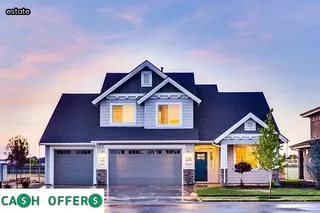
When a tenant is accused of squatting in South Carolina, they may have several potential defenses. Squatters can argue that they were not aware of the law or that they had permission from the owner to occupy the property.
Another defense might be that the squatter has occupied and used the property openly and continuously for more than 10 years, as this length of time would make it difficult for the owner to prove their claim. Additionally, some squatters may argue that they did not know who owned the property when they moved in, which could weaken an owner's case.
It is also possible to argue that a squatter improved or maintained a property while occupying it and that this was done with good faith and without any knowledge of violating anyone's rights. Finally, in some cases, squatters can argue that they are being discriminated against by the landlord due to race, religion or other factors.
Understanding these potential defenses can help tenants accused of squatting protect their rights in South Carolina.
Although South Carolina laws address squatting, local governments play an important role in preventing and addressing this issue. Local ordinances can provide additional protections for homeowners by limiting the time a squatter must inhabit a property before they can claim legal rights to it.
Municipalities can also create rules that make it easier for homeowners to reclaim their properties from squatters. In addition, local government agencies often have access to resources such as housing assistance programs which can be used to help those who may be at risk of becoming squatters.
Finally, local governments can also create public awareness campaigns about squatting, so that both homeowners and potential squatters are aware of the laws in their area and how they affect them.

The difference between trespassing and civil disputes involving unauthorized occupancy can be quite confusing. Trespassing is illegal and criminal in nature, while civil disputes regarding unauthorized occupancy are considered civil matters that must be addressed in court.
Trespassing is a crime of entering someone else's property without their permission or without their knowledge, while an unauthorized occupant is someone who has taken up residence on a property without the owner's permission or knowledge. It is important to remember that the two terms are not interchangeable and can lead to different consequences.
For instance, if someone were to trespass on another person's property in South Carolina, they would face criminal charges - fines, prison time, etc. However, if an unauthorized occupant were to take up residence on a property in South Carolina, the homeowner could pursue legal action through civil courts to have them removed from the premises.
Understanding the differences between these two concepts is essential for any homeowner seeking to protect their rights under South Carolina adverse possession laws.
In South Carolina, a squatter's rights to real estate are determined by the state’s adverse possession laws. These laws outline the conditions where a squatter can gain title to property they do not own if they possess it for a certain length of time.
Renters in South Carolina have limited rights under these laws and cannot claim title through adverse possession. For homeowners in South Carolina, understanding the nuances of the state’s rules surrounding squatters is essential for protecting their property.
There are two main criteria that must be met for a squatter to gain legal title: physical possession and payment of taxes on the property. A squatter must occupy the land openly, continuously, and exclusively for at least 10 years before being able to file an action for adverse possession with the court.
Additionally, they must pay all taxes that are due on the property each year during this period in order to maintain their right to it. Homeowners should be aware of these requirements so they can take appropriate action if their land is ever occupied without permission or authority.
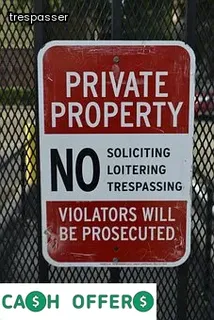
In South Carolina, the common law defense of necessity is an essential concept to understand when it comes to a homeowner's knowledge of adverse possession laws. The general principle of necessity holds that if a person has an immediate and pressing need for use of another's property, they have a legal right to do so without the owner's permission.
In other words, this law allows someone to utilize property that is not their own with no repercussions in certain cases of dire need. This applies not only to physical possession but also extends to improvements made on land owned by somebody else.
This could be anything from trimming trees or mowing lawns to erecting walls or building homes. While this law should be used as a last resort and with extreme caution, understanding the implications of South Carolina's common law defense of necessity can help homeowners protect their rights and stay informed when dealing with potential squatters.
Yes, South Carolina does have squatters rights, which are governed by the laws of adverse possession. Adverse possession is a legal concept that allows someone who has been occupying and using real property without authorization from the rightful owner to gain title to that property.
In South Carolina, a squatter must meet certain requirements in order to claim adverse possession. The squatter must be in continuous, exclusive, and open possession of the property for at least 10 years.
They must also pay all applicable taxes on the property during this time and make improvements or repairs to the property. If these conditions are met, then a squatter may be able to establish a valid claim for adverse possession under South Carolina law.
A homeowner should be aware that if they do not take action against a squatter within this 10-year period, then they may lose their rights to the property and be unable to reclaim it unless they can prove fraud or other illegal activity on the part of the squatter. Homeowners should also understand that even if they win an eviction case against a squatter, they may still owe back rent or damages for any improvements made by the squatter while living on their property.
It is therefore important for homeowners in South Carolina to familiarize themselves with their state’s squatters rights laws in order to protect their interests and ensure that no one wrongfully takes advantage of them.
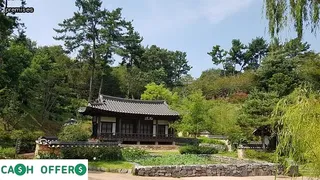
Evicting a squatter in South Carolina can be done legally, but it is important to understand the state’s laws regarding adverse possession before taking action. Squatters rights in South Carolina are governed by the statutes of adverse possession, which were created to protect a person who has been occupying property for an extended period with or without permission from the rightful owner.
In order to evict a squatter in SC, the homeowner must prove that they have had exclusive and continuous possession of their property for at least ten years. The homeowner must also show that they have made improvements on the property, paid taxes and other expenses, and maintained control over it during that time.
If these conditions are met, then the court will issue an eviction notice to remove the squatter. It is important to note that if there is any dispute over the ownership of the property, then legal action should be taken before attempting to evict a squatter in SC.
In South Carolina, squatters rights are established through the legal concept of Adverse Possession. To claim adverse possession, a squatter must occupy the premises continuously and openly for 10 years or more.
The squatter must also pay all property taxes during that period and make necessary repairs to the property. Additionally, they must be in exclusive possession of the land and use it as if they had full title.
Finally, there must have been no permission granted by the owner of record for the occupancy. If these criteria are met, then a squatter may receive title to the property after 10 years of continuous possession.
It is important for homeowners in South Carolina to understand these laws and their rights concerning squatters in order to protect their investment.
In South Carolina, abandoned personal property is subject to the laws of adverse possession. If a homeowner has taken possession of an abandoned property in good faith, and has occupied it for a period of at least 20 years, then they may have acquired legal title through adverse possession.
This means that the owner may have lost all rights to the property and the squatters are now considered to be the rightful owners. In order for this process to be successful, squatters must prove that they have been occupying the property for a continuous period of time with no interruptions and that they were unaware that their occupation was unlawful when they first took possession.
Homeowners should be aware of these laws as they could potentially result in costly legal actions against them if they are found to have violated them.
In South Carolina, the statute of adverse possession is governed by the Adverse Possession Act. Under this act, a person who openly and notoriously holds real property without permission from the legal owner for at least 10 years can gain title to the land through adverse possession.
In order to establish adverse possession in South Carolina, certain elements must be met including: actual, open and notorious, exclusive, hostile and continuous possession for 10 or more years; payment of all taxes due on the property during the period of possession; and an intent to possess. If all of these elements are satisfied, then a court will likely rule in favor of the squatter and grant them title to the land.
It is important to note that squatters rights are only applicable if there are no intervening rights given by law. The law also states that title acquired through adverse possession cannot be obtained against public lands or lands owned by churches or charities.
Knowing South Carolina's laws on adverse possession can help homeowners better understand their rights when it comes to dealing with squatters.
Are squatters rights OK? Squatters rights in South Carolina are based on the state's Adverse Possession laws. While these laws can be complex, it is important for homeowners to understand their rights when it comes to dealing with squatters.
In South Carolina, squatters have the right to occupy a property after they've been on the property continuously for 20 years or more. Squatters also have a right to title if they meet certain criteria including paying taxes, making improvements to the property, and exercising exclusive possession of the land.
For a homeowner in South Carolina, this means that it is important to be aware of any potential squatters on your property and take steps to prevent them from staying longer than their allowed period of time. It is also important for homeowners to consider whether or not it makes sense to bring legal action against a squatter if they do not vacate voluntarily.
Understanding your rights under South Carolina's Adverse Possession laws can help you make an informed decision about how best to protect your home from unwanted squatters.
A: Land Owners in South Carolina have a right to evict Tenants at Will and Claimants that have taken up residence on their property without permission.
A: Landowners in South Carolina have the right to evict tenants at will without cause, as well as claimants who have occupied a property without the owner's permission for more than 30 days. If a claimant has been occupying the property for less than 30 days, then the landlord must follow the procedures under South Carolina's trespassing laws to legally remove them.
A: Notice to Quit is a formal document served by a landowner to a tenant or squatter in order to terminate their possession of the property. In South Carolina, Notice to Quit must be provided before filing legal action against an unlawful entry or Adverse Possession claim.
A: In South Carolina, a property owner has the right to evict tenants at will or squatters from their rental property with proper legal action. The owner is also entitled to recover any unpaid rent, damages, and costs associated with the eviction.
A: In South Carolina, lien holders have the right to obtain a court order to evict bona fide squatters. The court order must be obtained prior to any action being taken against the squatters.
A: Landowners in South Carolina dealing with squatters should contact their local Sheriff, Police or Constable to determine the rights of the landowner and any Tenants at Will or Claimants. The Sheriff, Police or Constable can also provide information on how to issue an eviction notice if needed.
A: The cause of action for Land Owners in South Carolina to Quiet Title from Tenants at Will and Claimants is a Petition for Ejectment.
A: In South Carolina, a claimant may establish title to land by adverse possession if they can show they have been in open, notorious, exclusive and continuous possession of the land for at least 10 years. The claim must also be made in good faith and with a claim of right.